Struggling to get by or maybe just looking for some tips to help you live within your means?
Then look no further!
Here we’ll show you what it means to live within your means, the benefits, as well as how to EASILY do it.
In fact, these 13 tips have allowed me to be debt-free for 15+ years, live a low-stress life, and allowed me to become a 1ST GENERATION MILLIONAIRE!
So check out the post below if you want to know to want how starting a blog or using an app like Personal Capital can help you live below your means or even achieve financial independence.
What Does It Mean To Live Within Your Means?
Living within your means is making sure that your lifestyle does not exceed the amount of money that you earn. This means creating and sticking to a budget, and making choices about your spending that align with your financial goals.
(Basically, finetuning your financial priorities.)
It can be difficult to live within your means, especially if you have a lot of debt or expenses, but it is possible with some planning and discipline. When you live within your means, you are in control of your finances and your financial future.
What Are The Benefits of Living Below Your Means?
Less Living Expenses
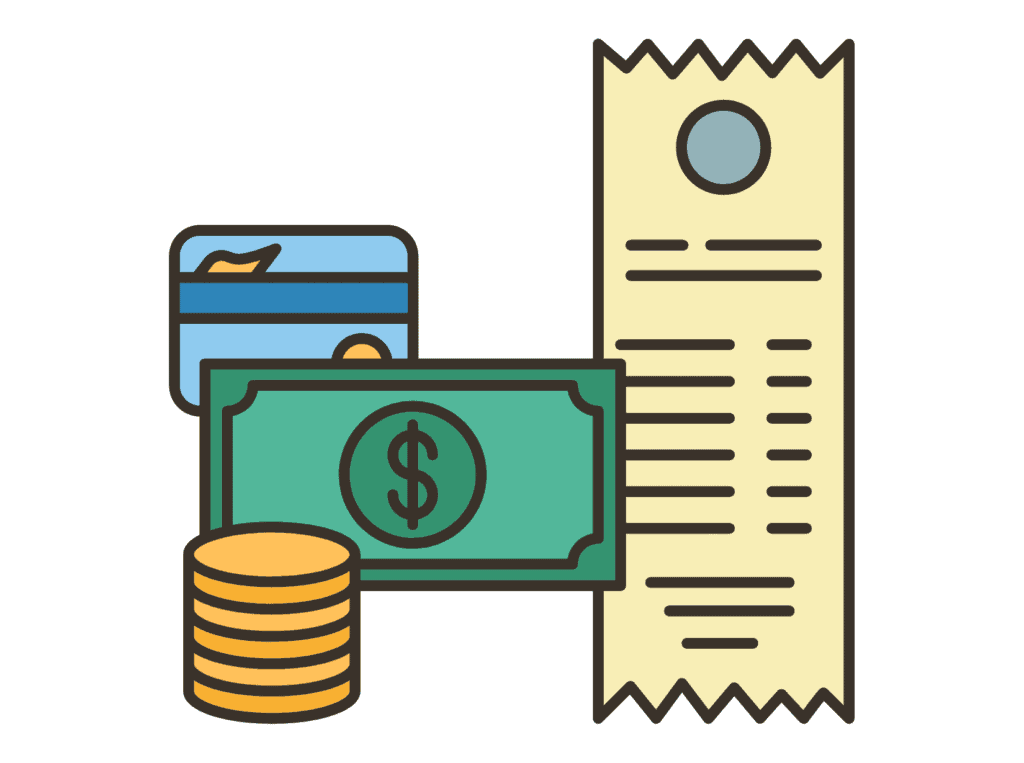
Some people choose to live below their means so they can have more money to save or invest, or just have a better overall financial life. Others do it to reduce their monthly expenses and have more cash available for other things.
Living below your means doesn’t mean you have to live on $500 a month in a cramped apartment or eat ramen noodles every day. It simply means spending less money than you earn, making sure you pay bills and being mindful of your spending.
Save Money Faster
When you don’t have unnecessary living expenses, it’s easy to put more cash into your savings account. And the more you save, the faster you’ll reach your financial goals.
Saving your income is essential to reaching your financial goals, but it can be difficult to do if you’re living beyond your means.
When you’re trying to figure out how to save for a vacation, for example, or just save in general, it’s essential to focus on your spending and ensure that you’re not overspending on unnecessary expenses.
Financial Freedom
One of the great things about living below your means is that you can achieve financial freedom. This means that you will have the ability to live without having to worry about money. You will have enough income each month to save, invest, and live more comfortably.
(Or, maybe, eventually live a luxurious lifestyle. 😁)
Less Stress

Money is a common source of stress for people, and when you’re trying to save, it can be even more stressful. When you live below your means, you won’t have to worry about money as much, and you’ll be able to focus on other things.
Better Health
When you’re stressed about money, it can take a toll on your health. But when you live below your means, you won’t have to worry about money as much, and you can focus on other things. This can lead to better physical and mental health.
13 Effective Ways To Live Below Your Means But Within Your Needs
1. Budget
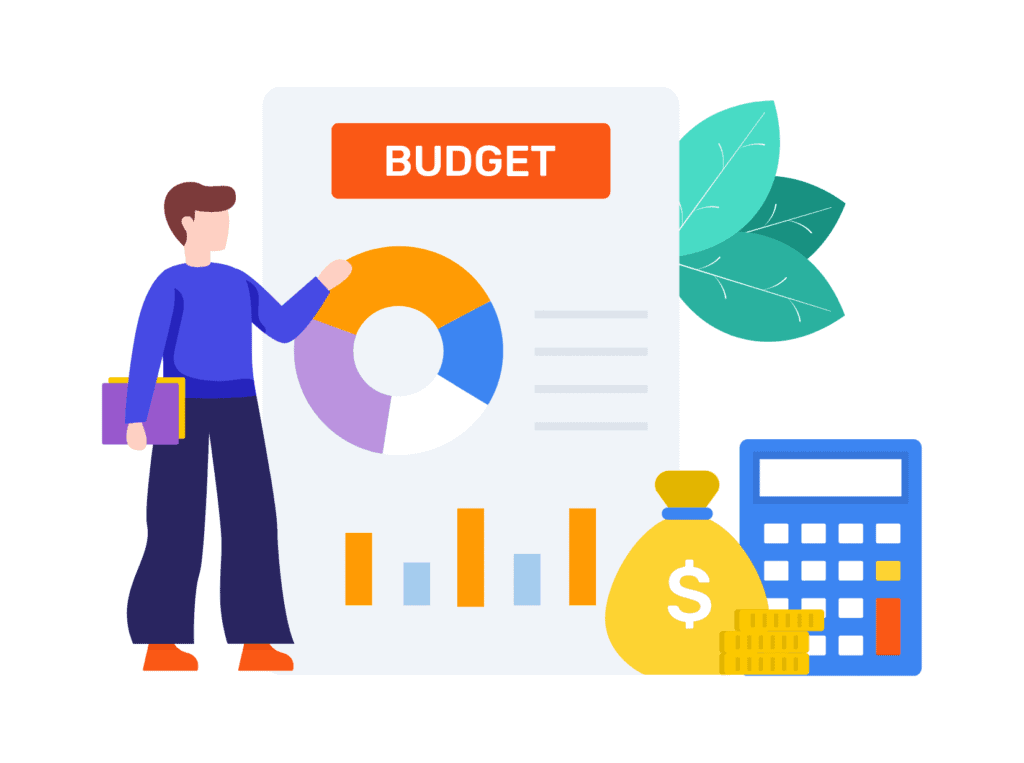
Creating and following a budget is one of the most effective ways to ensure that you are living below your means. A budget allows you to track your spending and figure out what to do with your income. This information can help you make changes to your spending habits so that you are able to save, pay bills, and build nice retirement savings.
I know I know…
Budgets TAKE FOREVER!
Well, not if you use Personal Capital.
Personal Capital is a free financial tracker app that lets you link your accounts and track your entire net worth, work with an advisor to build a free personalized plan, and allow you to get wealth management custom-tailored to your unique situation.
Boom…
Money accounted for without spending ALL DAY LONG. 😁
2. Have An Emergency Fund
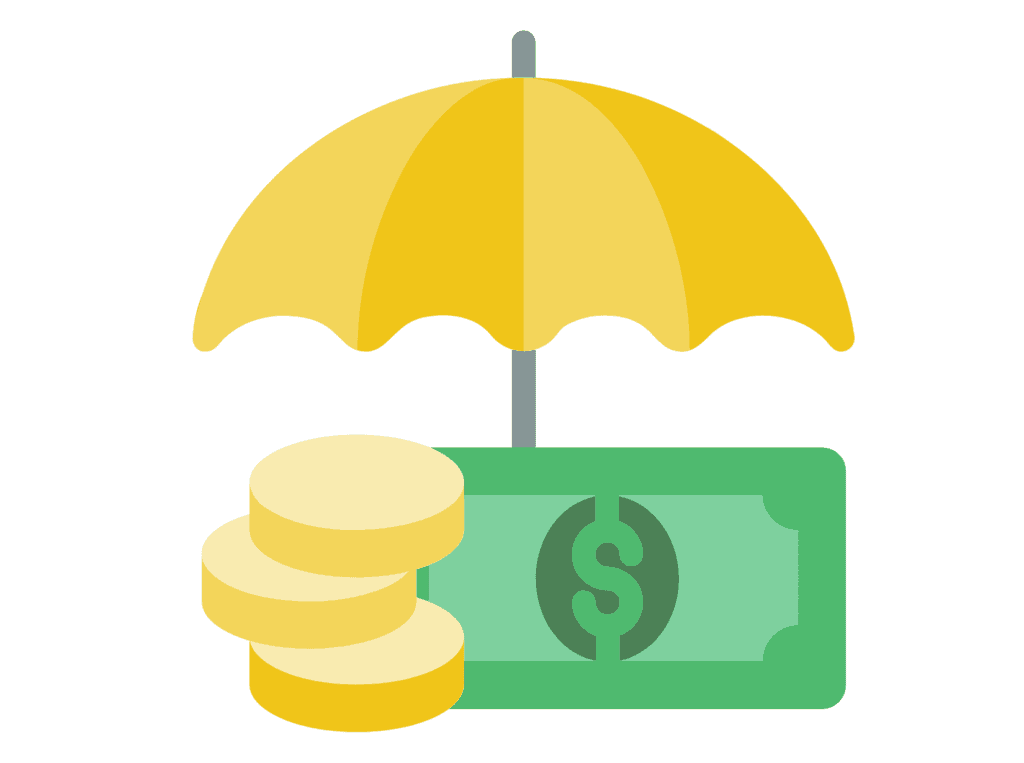
One of the best ways to live below your means is to have an emergency or rainy day fund (usually three to six months of fixed expenses worth). This way, if a financial emergency comes up (minor emergencies or big ones), such as an unexpected job loss, you will have the income to cover it without going into debt.
Emergency funds can also help you avoid using credit cards for unexpected expenses, which can help you keep your debt under control.
3. Save 50% of Your Income
One of your first priorities, when possible, should be to start saving 50% of your income.
If you can do that, living within your means comes automatically at that point.
When you start saving that much, it gives you a lot more flexibility in your budget and helps you fortify that emergency fund, that way you can weather any financial storms that come your way.
That you are definitely living within your means. It’s also a fantastic way to build wealth and achieve financial independence.
So, if you are looking to get your financial house in order, and build wealth, then saving 50% of your income is a great place to start.
4. Use Cash Only
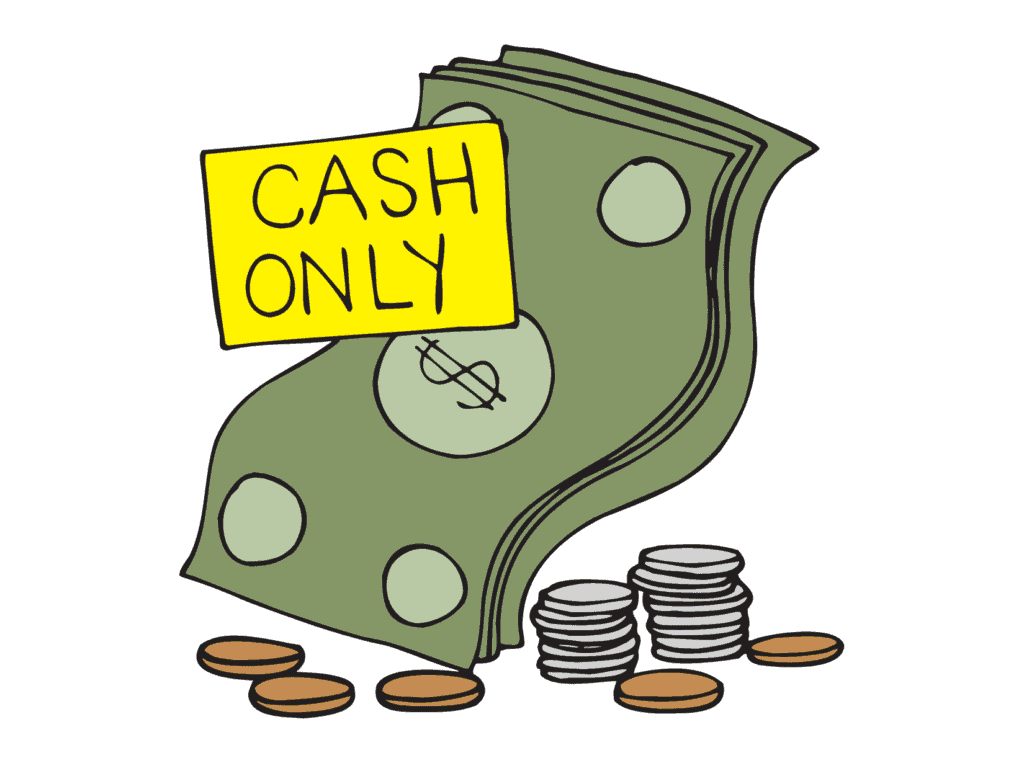
When you use cash only, you are more aware of your spending. You have to think about whether or not you can afford something before you buy it. This helps you to live below your means because you are not spending money you don’t have.
Credit cards can be dangerous because it is easy to spend money you don’t have. This can lead to debt and financial problems. When you use cash only, you are less likely to overspend, have a negative credit card balance, and get into debt. (Your credit card company might hate you, but that’s okay 😁.)
Living below your means is important for financial stability and peace of mind. Using cash only is one way to help you achieve this goal.
5. Get Out of Debt
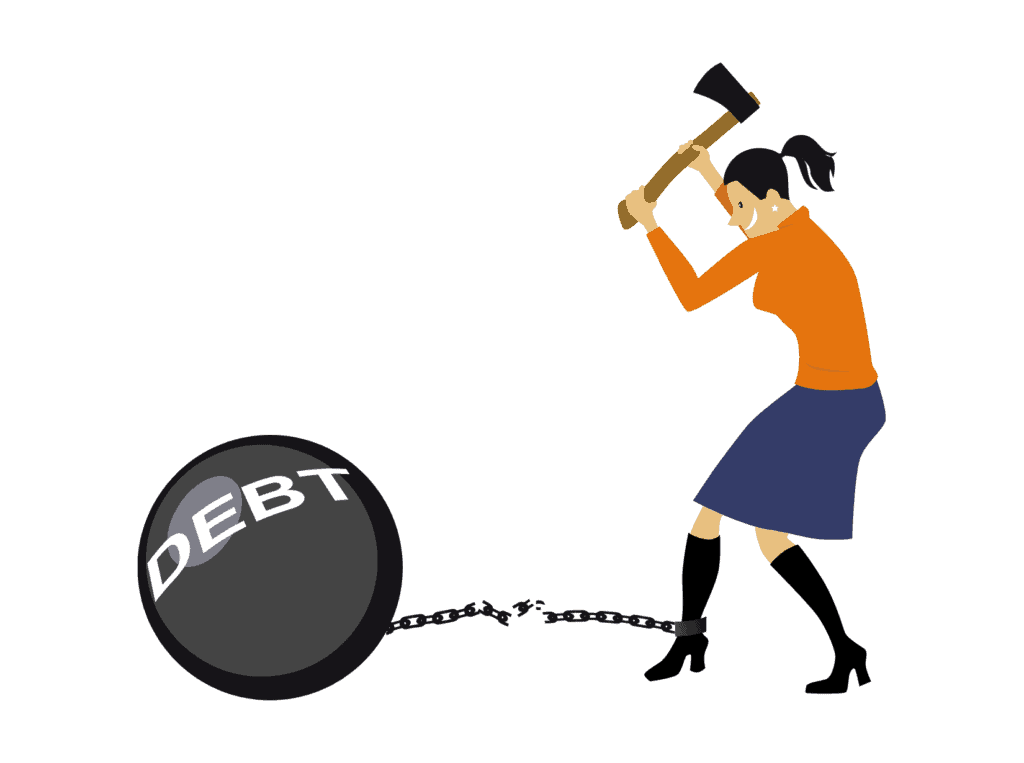
Some people may view being in debt as a means to an end. That is, they think that by borrowing money and using credit, they can live a more comfortable life than if they were to stick to a budget and save their income.
However, this way of thinking can often lead people into a cycle of debt that can be difficult to break out of.
Living below your means, on the other hand, is a much more sustainable way to live. It means making choices in your life that allow you to spend less than you earn, and as a result, you will have more income available to save and invest.
This can help you build long-term wealth, as opposed to just trying to get by from month to month.
6. Don’t Impulse Buy

One of the best ways to stay within your budget is to avoid impulse buying. This means that you take the time to think about whether or not you really need or want something before you make a purchase.
There are a few ways that you can do this. One is to simply ask yourself if you can wait 24 hours to make the purchase. If you can, then it is probably not an essential purchase.
Another way is to figure out the cost per use of an item.
For example, if you are considering buying a $5 coffee every day, that adds up to $1,825 over the course of a year. However, if you brew your own coffee at home for $0.50 per cup, that same $5 would only buy you 10 cups of coffee.
So, next time you are about to make a purchase, take a step back and ask yourself if it is really necessary.
Chances are, if you can wait to buy it or the cost per use is high, you can live without it and save yourself some money.
7. Don’t Keep Up With The Joneses
In today’s society, it seems like everyone is trying to outdo their neighbors. They’re always looking to see what the Joneses have, and then they go out and try to get something even better.
As soon as that paycheck comes in, so do the new material things, such as the new television, the new car, and large purchases such as a new home. (Unfortunately, more debt follows… 🙁)
But what if you stopped buying things you can’t afford? What if you stopped trying to outdo your neighbors and instead just focused on living below your means?
I’ll tell you what, in just a few months…
YOU’D SAVE A LOT OF MONEY!
Avoid the fake wealth mindset at all costs.
Your future self will thank you when you’re not living paycheck to paycheck.
8. Get A Side Hustle

One of the best ways to live below your means is to get a side hustle. A side hustle is a way to increase your cash flow without having to take on a part-time job or even a full-time one. There are many different ways to make money from a side hustle, but one of the most popular is online blogging.
Blogging is a great way to make money because you can do it from anywhere in the world, and all you need is a computer and an internet connection. You can also make money from blogging by selling products or services, or through affiliate marketing.
Another great thing about blogging is that it helps you to live below your means because you can use it to save more. For example, if you have a blog about frugal living, you can use it to share tips and tricks on how to save money. You can also use your blog to share deals and coupons that you find.
“Sign me up how do I get started!?!”
Bluehost. For just $2.95 a month (1 penny a day!) you can start a blog, possibly start making over $200,000 a year, and finally quit your 9-5!
That’s my plan. Spend some pocket change to have the chance to stay home with my kids. 😊
(Oh, here’s some proof that making that much money is an actual thing.)
9. Ask For Discounts
One of the best ways to live below your means is to ask for discounts. Many stores offer discounts to customers who ask, and these savings can add up over time. Discounts can be found on everything from groceries to clothing to travel expenses, so it pays to ask.
Asking for a discount does not mean that you are cheap or needy; it simply means that you are savvy about your finances. Discounts can help you stretch your budget and allow you to live a comfortable life without spending more than you can afford.
If you are not sure how to ask for a discount, start by doing some research. Look for store policies or ask a salesperson about discounts that may be available. Be polite and confident when you ask, and be prepared to walk away if the store is not willing to give you a break on the price.
10. Get Free Stuff

One way to help save more cash and live below your means is by getting free stuff from friends, family, or Swagbucks. When you get free stuff, you are essentially getting something for nothing, which means you can save your money for other things.
“Awesome sauce, I love free stuff! But quick question… what is Swagbucks?”
Ah yes…
The ultimate of ultimate of free stuffs…
It’s free, and it HELPS YOU MAKE MONEY!
Swagbucks is essentially a website where you fill out surveys for companies, and then you get points that you can redeem for gift cards.
Christmas shopping just got easier!
11. Live With Someone Else
When you live with someone else, you are able to share the costs of living. This can help you both save more and live below your means.
For example, you can split the cost of rent, groceries, and utilities. This can help you both save and live more affordably.
Additionally, living with someone else can help you save on expenses like transportation and child care. If you have children, you can share the cost of child care. If you live in a city, you can share the cost of transportation. This can help you both save more and live more affordably.
Finally, living with someone else can help you reduce your overall stress levels. When you live alone, you are responsible for everything in your home.
12. Car Pool
Carpooling is an excellent way to reduce your monthly expenses. By sharing a ride with others, you can save on gas, parking, and wear and tear on your vehicle. Carpooling also reduces your carbon footprint and helps to reduce traffic congestion.
If you are interested in carpooling, there are a few things to keep in mind.
First, you will need to find others who are interested in carpooling. You can do this by asking around at work or school or by searching online. Once you have found a few potential carpoolers, you will need to work out a schedule that works for everyone.
Another thing to keep in mind is that carpooling is not always free. Sometimes, the person who is driving will charge a small fee to cover their expenses. However, this is usually much cheaper than taking public transportation or driving yourself.
If you are looking for a way to save your income and help the environment, carpooling is a great option. Just be sure to do your research and find a carpool that works for you.
13. Practice Gratitude

When you focus on what you’re grateful for, it naturally follows that you’ll want to take care of the things that bring you joy. You’ll be more likely to save your income and live below your means when you’re grateful for what you have.
Focusing on gratitude also helps shift your perspective from a scarcity mindset to an abundance mindset. When you see the world as abundant, it’s easier to let go of material possessions and focus on experiences instead.
Gratitude also makes you happier and more resilient in the face of adversity. Studies have shown that gratitude is associated with greater well-being and happiness, and can even help buffer the negative effects of stress.
So practicing gratitude is not only good for your wallet, but it’s also good for your mind and body. When you make gratitude a part of your daily routine, you’ll be on your way to a happier, healthier life.
(Oh, if you need a good book to help you practice gratitude, try the Miracle Morning.)
FAQ
What Does Within Your Means Mean?
Within your means refers to spending and living within your income and means. This can be accomplished by creating a budget and sticking to it. Living within your means can help you avoid debt and financial problems.
What Does Spending Above Your Means Mean?
Spending above your means is when you spend more money than you actually have. This can lead to financial problems and debt.
Why Is It Important To Live Below Your Means?
It is important to live below your means because it helps you stay within your budget and avoid debt. When you spend more than you have, it can lead to financial problems.
Do People Live Within Their Means?
No, not everyone lives within their means. Some people spend more money than they have, barely making ends meet, and this can lead to financial problems. It is important to live below your means to stay within your budget and avoid debt.
How Much Does Saving Money Help Me Live Within My Means?
Saving money can help you live within your means because it allows you to have extra money to cover unexpected expenses. It is also important to save for future goals.
Summary
So, what does it mean to live below your means?
It means that you spend less than you earn.
Seems simple enough, right?
But for a lot of people, living within their budget is a challenge.
Why?
Because most of us are taught that the more we have, the better off we are. And while there’s nothing wrong with having nice things, if you’re not careful, you can easily fall into the trap of spending beyond your means and getting yourself into debt.
However, if you can learn to live within your means – even if it means making some sacrifices in the short-term – you’ll enjoy a number of long-term benefits.
What tip will you use today to help you live within your means?
Will you use the budgeting app Personal Capital to help you easily monitor your finances?
Or will you use Swagbucks to get free gift cards for your kid’s next birthday?
Hello! I'm Charles. 1st gen millionaire, real estate investor, health enthusiast, and military veteran. In the last 17 years, I have managed billions of dollars of resources for the Department of Defense. Created financial management plans that enabled fellow service members to get out of thousands of dollars in debt and tailored wellness plans that helped people reverse and eliminate high-blood pressure, pre-diabetes, and obesity. Learn more about me here.